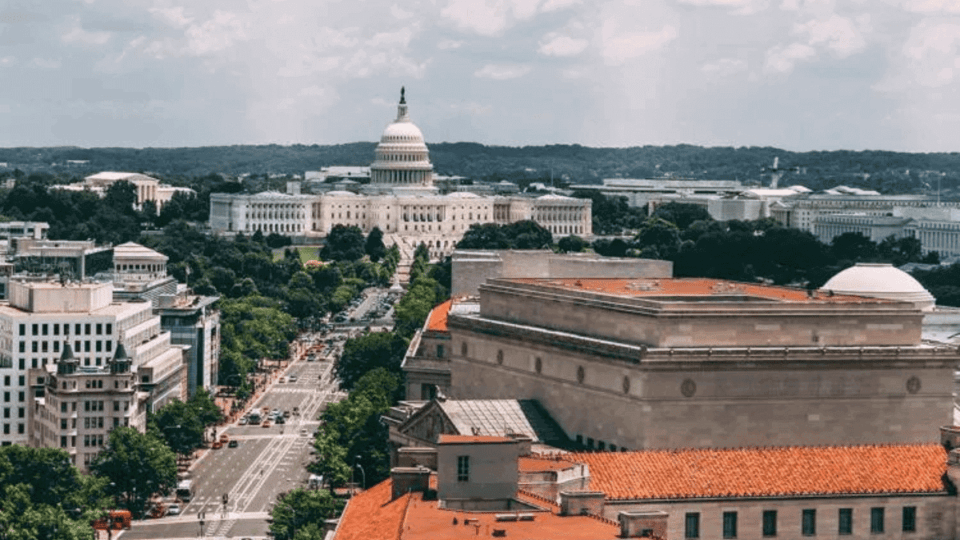If you’re thinking about pulling up stakes and moving to a new area, there are plenty of reasons to consider Washington, DC. The job market is rich, with over 140,000 people working in government jobs alone, as well as thousands of jobs in major business sectors like healthcare, tourism and defense contracting. The suburbs are considered some of the best in the country when it comes to education. There are four distinct seasons in DC’s climate, without getting too cold in the winter or overly humid in the summer. DC is lauded for its diversity in population, culture, and cuisine, and, of course, there are a ton of things to do and see, especially if you enjoy American history, historical monuments, and museums.
But there are some things you should take into account before you pack up and move to DC, particularly when it comes to buying a home. Armed with these facts, you can make a much more informed decision about whether DC is the right place for you.
The Home Market is Fiercely Competitive
DC is not far behind Los Angeles in terms of real estate costs — meaning it’s one of the most competitive and expensive housing markets in the country. Your typical home in North America sells for about $370,000. In Washington, DC, that same house will average about $709,000. That means if you’re looking to relocate, you may find yourself waiting longer to save up the necessary funds, and possibly having to move to nearby suburbs or surrounding towns in the area — which will mean more of a commute, but at least housing costs won’t break the bank. Moving to a nearby area like Fairfax, Bethesda, or Silver Spring might be your only viable option unless you’ve got a lot of money to spare.
Renting Can Be Tricky
Some people look for a home in DC not to live in year-round, but to either rent out during part of the year to help defray expenses, or just to invest in DC. real estate. If you’re one such person, you should know renting out a house in DC isn’t as simple as it might be in other states. For starters, the city’s renting regulations heavily favor the renter — for example, it’s illegal to charge more than one month’s rent as a security deposit. There are also more protected classes when it comes to renting in DC — you’re not allowed to discriminate against income, personal appearance, or several other criteria. Finally, it’s worth noting that when landlords decide to sell the house, they are legally required to give tenants the option to purchase the house before putting it up for a traditional listing.
Property Taxes and Insurance
One bright spot on the DC real estate landscape is that property taxes are relatively low compared to other areas — about 0.56%. (You can figure out what your taxes will be with an online tool). Buying and selling a home in DC also involves additional transfer taxes, which amounts to 2.2% for homes under $400,000, and 2.9% for homes above that.
There’s also good news in terms of property taxes. Ross Martin at The Zebra reports that your average cost of home insurance will be around $86 a month, which is less than the national average — and that’s only if you don’t first hunt for the best Washington DC homeowner’s insurance you can get. Shopping around between various insurance companies or bundling your home and auto insurance together are both great ways to pay less in premiums each month.
House-Flipping and Investing
First off, you should know that DC is a great place to invest in real estate. The average price of a DC home today is over $150,000 more than what it was worth five years ago. There’s a consistent demand for housing that’s unlikely to go away anytime soon. The neighborhoods of Michigan Park, Anacostia, Lilyponds and Deanwood are particularly hot at the moment. On the downside, flipping houses in DC can be much tougher than other areas because of the high cost of housing — the margins are slim and finding a foreclosed home for a reasonable price isn’t going to be easy.
Older Homes
While history is one of DC’s major draws, it can also be a drawback if you’re looking to buy a home there. DC is an old city, and that means the houses are frequently older, too. While they may have a certain rustic charm, they might also have issues like foundation problems, deteriorating roofs, bad plumbing, wiring or electrical issues, or even lead paint and radon. These aren’t insurmountable issues by any means, but it will likely mean additional expenses for mitigation and renovation — so be prepared to pay some extra money on top of those DC real estate prices.
